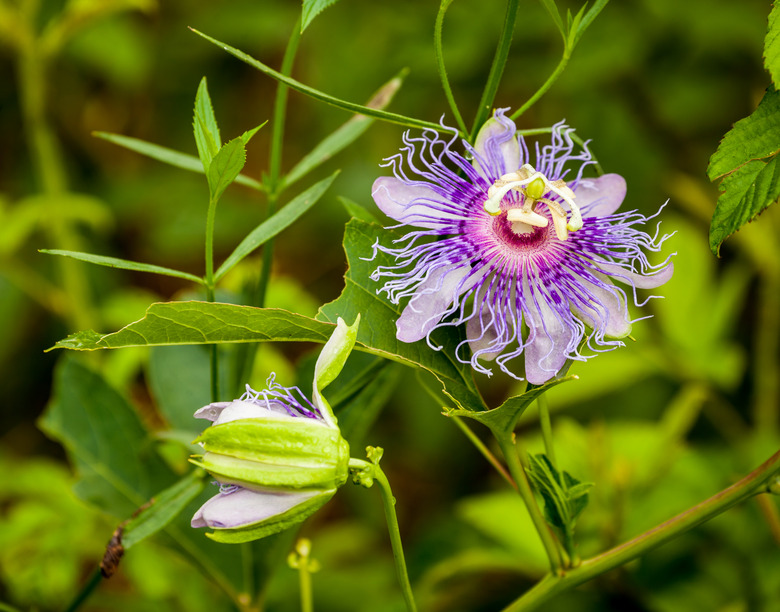Is Passion Vine Toxic To Pets?
The passion vine (Passiflora incarnata), also known as passionflower, offers a lovely flower with tendril-bearing vines that brighten up outdoor spaces with beautiful color and fragrance. But is the passion vine dangerous to pets? Understanding this plant will help you ensure that your pets are safe.
Tip
While some plants do pose risks for pets, neither the passionflower fruit nor the plant is toxic to pets or humans.
What Is Passion Vine?
The passion vine is a flowering plant known for its unique blooms and the coiling tendrils that make it perfect for climbing. Native to the U.S. Southeast, the passion vine grows rapidly, producing edible fruit in midsummer. Many people in the South refer to passion vine plants as purple passionflower vine or maypops, which is derived from the popping sound that results from stepping on fallen fruits.
Its growth requirements make this plant suitable for U.S. Department of Agriculture plant hardiness zones 5 through 9. It thrives when given some protection and a place to climb such as a fence, trellis, or wall.
Uses for Passion Vine and Passionflower
The plant spreads easily and looks its best when given a chance to climb. The vine tendrils wrap around supports to create an organic look, and the flowers offer a unique kiss of color in the landscape. The flowers with their white petals and pink/purple filaments bloom in the summer months and are pleasantly fragrant.
Maypops, the fruit produced by the passion vine, are round and appear in midsummer. Turning yellow when ripe, they are wonderful to eat fresh or make into jam.
Are Passion Vines Poisonous to Animals?
Passion vine plants and fruits are not toxic to pets or people. The ASPCA does not include the passion vine on its list of toxic plants for cats or dogs, and passionflower extract may even have positive effects on pets with anxiety or mood disorders. Before giving your pet a botanical extract or another type of supplement, though, please touch base with your vet to make sure it's OK.
It's important to know how to keep your pets safe at home. Understanding the indoor and outdoor plants you have will help you protect your furry friends and ensure that they live long, healthy lives.
Tip
Remember, many plants are dangerous for animals, so knowing what you have is an important part of keeping your pets safe.
If you're ever concerned about something your pet has consumed, reach out to your local veterinarian or animal poison control.
References
- WebMD: Passionflower – Uses, Side Effects, and More
- Britannica: Passion Flower
- Missouri Botanical Garden: Passiflora incarnata
- Innovative Veterinary Care: The Benefits of Botanicals in Canine Behavior Management
- Animal Wellness Magazine: Top 6 Herbs To Relieve Anxiety in Cats
- Lady Bird Johnson Wildflower Center: Ask Mr. Smarty Plants: Poisonous Plants, Vines
- ASPCA: Toxic and Non-Toxic Plant List – Cats
- ASPCA: Toxic and Non-Toxic Plant List – Dogs
- NC State Extension: Passiflora incarnata
